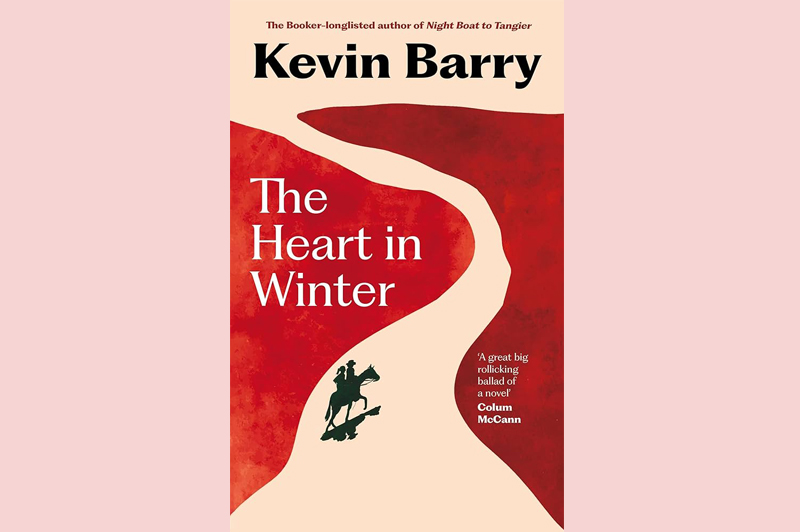If Wikipedia is to be believed (and what kind of a world would we be living in if we couldn’t make our way with this one certainty to hand?), Kevin Barry has declared himself to ‘want my reader to adore me, to a disturbing, stalkerish degree.’ I don’t know if reading someone’s Wikipedia entry counts as stalking, but I do know this: having had my first taste of Barry’s prose in the shape of The Heart in Winter, I will need to have some more of it soon. And while I wouldn’t call that disturbing, I would certainly call it uncommon – in the very best of ways.
First, I’ll tell you what happens in the book. Then I’ll tell you why having read my summary will have been a waste of your time.
Tom Rourke is an Irish opium addict in 1890s Butte, Montana, whose lines of work include assisting a latently homosexual, Francophobic photographer, arranging marriages via mail by misrepresenting various breeds of obvious loser among his acquaintance, and selling a bit of dope here and there. In performing his first job taking the wedding photos of a couple who may or may not have come together by means of his second job, Tom manages to fall madly and mutually in love with Polly Gillespie, newly married to a mine captain whose only interesting characteristic is a zealous particularity for self-flagellation. With the aid of a horse by whose ‘golden aura’ Tom has previously been bewitched, and money stolen from a Croatian boarding-house matriarch via a hasty act of arson, Tom and Polly go on the run with San Francisco their stated goal.
Maybe waste of time was too strong. After all, a tragi-comic western picaresque novel sounds like a thing that ought to exist, and which I’d read even if it wasn’t by Kevin Barry. But this is a book where you could open it to any page having read none of what’s come before, and you’d have a wonderful time without needing to know what the hell was going on. This is a book where phrasing is everything, written by a man who clearly wants to show off, and for whose verbal ostentation you end up feeling nothing but gratitude because it is, quite simply, marvellous. There are lots of writers I wish I could write like, and the latest addition to this list is Kevin Barry.
In planning this review, I was initially tempted to give you a string of quotations and not much else. But in the end I went for simple panegyric because I really couldn’t choose which parts to quote. Just read the whole thing. Or pick pages at random. Whatever. You’ll be glad either way.







Click here to change your cookie preferences